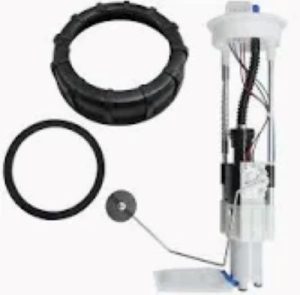Fuel pumps provide some pressure to help move fuel into the engine, and a typical fuel pump will generate between 30 and 60 psi (pounds per square inch) of said pressure depending on the manufacturer and model. This acts like a sweet spot on the delivery which allows fuel to be delivered right and timely in the engine without spilling it and keeps things under control.
Fuel Injection Systems: On a vehicle equipped with multipoint fuel injection (MPFI), fuel pressure should be approximately 40 to 60 psi. This increased pressure guarantees the accurate atomization of fuel, which is necessary for efficient combustion and improved efficiency. Throttle body injection (TBI) systems…these older systems run in very much lower pressures, 10 to 20 psi is usually where these live.
Diesel Engines: Compression ignition in diesel engines needs much higher fuel pressure to function properly. The pressure that the fuel pump has to maintain is 15 — 30 000 psi in common rail diesel engines. This high pressure is necessary to vaporize the denser diesel fuel cleanly and burn it efficiently at high compression ratios.
The relationship between pressure fluctuations and efficiency: To provide high-performance engine performance, maintaining the ideal fuel pressure is crucial. Typically, 10% below the specified range is often a cut-off for this since any lower than this could cause problems like lean fuel mixtures, poor acceleration and even engine misfire. Conversely, high fuel pressure can cause the engine to run rich and produce high levels of emissions, decrease fuel economy, and over time cause damage to the catalytic converter.

Fuel Pressure Regulators– This controls a vehicle's fuel pressure, keeping it within the specified range. Instead of merely regulating how much fuel goes back to the tank, it adjusts that amount relative to engine demand, keeping pressure steadier as engine RPMs and loads change.
As an example, during the 1970s fuel crisis, inability to support proper fuel pressure resulted in a significant reduction of engine efficiency by as much as 15%, making it quite important to control fuel delivery sufficiently so cars can provide both power and good economy.
Rolls-Royce co-founder Henry Royce said it best: "The quality will remain long after the price is forgotten." Their value becomes even clearer when looking at why keeping your fuel system healthy by investing in a proper fuel pump that can maintain desired pressure leads to long-lasting engine reliability and performance.
For more specific specifications and help finding the best fuel pump for your vehicle, head to Fuel Pump. Proper fuel pressure begins at pump selection